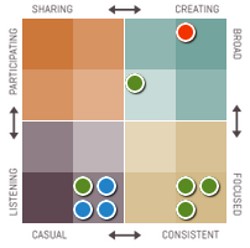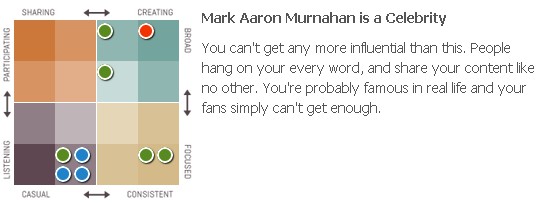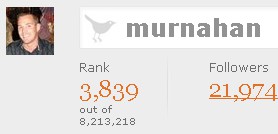
How much do people know about you? This is an important question to a lot of people, and particularly businesses. Another perhaps even greater question is “how much do they know about you that gives false indications about you?”
Opinions are very important, and also very easy to forge in social media. At least the bad opinions are easy to create, and so it becomes important to address things which may give early impressions about you, or your company.
There are millions of companies hot on the trail to compiling data about you online. It is easy to imagine that all of the data is just aggregate data which applies to you and millions of others like you, but there is also a shocking amount of data about you, specifically. This is not always a huge security risk, such as people stalking your social media usage to know when you are home and away, or anything so threatening as that. However, a risk that it may impose is an early impression that people or companies may create about you, or insights to your weaknesses.
Whether you are in the business of social media, or using it to promote your business, there are a lot of ways for people to make early, and perhaps false judgments about you. This is not limited to subjective statements about you or your company, and it is often presented with objective data.
I will point out a handful of the social media ranking and measurement tools that people may use to gather an opinion of you. Some may appear as little more than tools to allow people to boast, and promote themselves as being greater than reality. Others may cause a greater impact, especially when used to form a composite view.
It should be noted that each of these services are subject to errors, and often have network limitations imposed by their sources. The data should never be presumed as completely accurate, but again, when a composite is created, it begins to paint a clearer picture.
Klout: “The Standard for Online and Internet Influence”
Klout has some pretty compelling data collection and measurement metrics (see Klout website). Klout measures influence of users across the top social networks, Twitter, Facebook, and soon to include LinkedIn. The service seems to be making a lot of progress with improvements such as daily score updates, which used to be limited to every six days.
On the surface, Klout may just appear to be great for producing bragging rights. However, the emphasis is for discovering others who are measurably influential within given industries or topics. This gives it huge potential for networking as people seek influencers. On the other side of the coin, it could also show competition where you are lacking.
I like Klout’s idea, and with a large group of developers working on their service, it seems they are putting significant effort into it. Since the release of a recent plugin, users are able to view Klout measurement in the popular desktop social media tool, Seesmic Desktop. This makes it clear that people are viewing this data, and most certainly forging opinions.
I believe that Klout has some real potential to add value and move their service forward. I must also say that, although they may be completely wrong about this, I am definitely flattered by their assessment of me as a “Celebrity”. Heck, roll out the red carpet … the Murnahan limo tweeted from 48th Street and is headed this way!

HubSpot Grader Tools
HubSpot has created a suite of individual tools for social media and website measurement, including a Facebook grader, Foursquare grader, Twitter grader, and more. I generally place much lower value on any singular social media signal when compared to aggregate data across multiple sources, but people are using them. The number of people using these tools to discover other influencers or forge opinions, as opposed to seeking bragging rights, is unclear.

- How To Become Popular on Twitter Without Actually Being Useful
- Twitter Like The Twitterati … But Get Me a Bucket!
- Twitter: The Tweet About Retweet
PostRank Measurements are Useful, but Flawed
PostRank measures social media engagement of blogs. Yes, blogs are social media. If your company does not have a blog, please stand up and hold out your wrists for a good slapping. Didn’t you read “10 Really Good Reasons to Blog“? Your competition probably did.
PostRank pulls data from many sources, which makes it far less fallible than others which only measure single points of data. PostRank is still limited to restrictions of networks, and simply cannot aggregate all pertinent data. However, it is more compelling than many measurement tools because it aggregates and assigns measurements from an impressive collection of data points.
The image below shows an example of a PostRank score for a given article which shows what PostRank knows about it. Again, I must emphasize that PostRank data can still be flawed, due to network restrictions and the sheer volume of data which is to be reported.

Advertising Age’s “AdAge Power150” Accuracy Through Composite Data
Advertising Age gives a great example of increasing relevance and accuracy by producing a composite view across more data points. The “AdAge Power 150” shows that if you selectively merge some of the many social media measurement tools together, the outcome can become more accurate and compelling.
In the example of AdAge Power 150, they have implemented measures of Todd Points, PostRank, Yahoo InLinks, Alexa Points, and Collective Intellect. Their calculations are explained on the Advertising Age website, and I think it makes a useful example of how social media measurement can be used to form a composite view. To further the depth of the data, most of their sources pull from multiple other data sources.
Summary of Social Media Measurement
Social media influence and authority of a company or individual is not easy to measure, but many people are seeking this data to make estimated guesses about you. This is becoming more prevalent as measurement tools are integrated with other services. It is easy to let down your guard and assume that nobody actually uses this sort of information, but they are, and in huge numbers.
If your online representation is weak, competitors can key in on that weakness and use it against you. On the other hand, if your online branding stands tall and reflects industry authority, it can lead to furthering your network and growing your business opportunities.
One common fact about each of these measurement tools is that in order to be viewed as relevant, you must make consistent efforts.
P.S. One of those measures of PostRank is comments. Strangely, my blog scores sky high, even with a considerably small number of comments, but you can still do your part! Tell me what you think, and how you feel about all of this measuring? How might it affect your business? Do you have a favorite?
Podcast: Play in new window | Download


